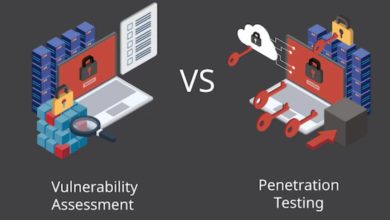Boosting Your Security with Software Firewalls: How They Protect Your Digital Business
Firewall as a service (FWaaS) market size is expected to grow to $7.39 billion in 2027 at a CAGR of 26.0%. Firewalls are made to protect our devices and data by blocking any malicious files trying to access our network. But what many of us do not know is that there are many types of firewalls.
One of the essential tools in the arsenal of cybersecurity measures is the software firewall. So what is a software firewall? Let’s understand and explore the paramount role of software firewalls in cybersecurity.
Understanding the Basics of Software Firewalls
Software firewalls, as obvious by the name, are firewalls in a software form rather than a physical appliance. These software firewalls are deployed in virtual machines or servers, acting as a barrier between your device and potential internet threat.
Unlike hardware firewalls, software firewalls are applications installed on individual devices, such as computers, mobile devices, and servers. They monitor and control incoming and outgoing network traffic, allowing only authorized connections.
The Role of Software Firewalls in Cybersecurity
Software firewalls, also known as traffic-filtering applications, play a pivotal role in safeguarding your digital business from a wide range of cyber threats. It acts as the first line of defense against malicious activities such as hacking attempts, viruses, malware, and unauthorized access. Because they are software-based, they work best in environments where physical firewalls are impractical, such as:
- Hybrid and multi-cloud environments
- Software-defined networks (SDN)
- Public cloud environments
- Container environments
- Virtualized data center
- Branch offices
- Hypervisors
Key Features of an Effective Software Firewall
An effective software firewall comes equipped with several key features that contribute to its robust security capabilities. Let’s discuss them one by one.
Packet inspection
Effective firewalls inspect network traffic. They use methods like packet filtering, where they check basic IP addresses and ports. They also use more advanced techniques like stateful inspection and deep packet inspection, which consider the context and content of packets.
IP address filtering
Software firewalls get a hold of your internet traffic and can sort permissions based on the IP addresses. They allow traffic from known, approved IP addresses and block traffic from unknown sources.
Port filtering
Packet filtering systems accumulate data related to the destination and source of data transmission ports; if they find anything suspicious related to the communication ports, they block them instantly.
Analytics and reporting
An effective software firewall gathers data about access requests. The insightful analytics and reporting provide data that can be leveraged in compliance audits and boost overall data security.
Security alerts
Software firewalls provide real-time monitoring of network traffic, generating alerts for suspicious or potentially harmful activities. This allows your IT team to take immediate action and mitigate threats.
Intrusion detection and prevention
Software firewalls can detect and block suspicious activities in real time, such as unauthorized access attempts and unusual traffic patterns. They can also prevent potential attacks by blocking malicious IP addresses.
Application control
These firewalls allow you to control which applications are allowed to communicate over the network. This feature helps prevent unapproved applications from accessing the internet, reducing the risk of malware infection.
Content filtering
Some software firewalls offer content filtering capabilities, allowing you to restrict access to certain websites or online content. This feature is particularly useful in preventing malware transmission through malware phishing links.
How Software Firewalls Enhance System Security
With robust traffic-filtering capabilities, software firewalls inspect every data packet and permit only those who pass predefined security rules. They control access between different applications and can block certain programs if required. Here’s how firewalls can enhance your security regime:
Network segmentation
Software firewalls divide your network into segments and apply different security rules to each segment to limit lateral movement within your network.
User-specific rules
Such firewalls allow users to create user-specific rules, giving you fine-grained control over who can access what resources.
Application-based flexibility
The software nature of software firewalls allows users to block certain programs or sites if needed. It controls user movement between applications.
Software vs. Hardware Firewalls: A Comparative Analysis
Let’s compare different aspects of hardware firewalls and software firewalls:
| Aspect | Hardware Firewall | Software Firewall |
| Installation | Installed between network and ISP | Installed on individual devices |
| Configuration | Difficult | Easy |
| Flexibility | No flexibility | High flexibility |
| Complexity | Installation is difficult and can only be performed by skilled staff. | Can easily and quickly be deployed, even by non-security experts |
| Cost | High | Low |
| Remote workforce | Not suitable for remote workstations | Ideal for securing remote devices |
| Security Depth | Offers strong perimeter protection | Provides protection at the device level |
| Performance Impact | Minimal impact on device performance | Can impact device performance |
Choosing the Right Software Firewall: Factors to Consider
Selecting the right software firewall for your digital business involves evaluating several factors. Let’s discuss them below.
Compatibility
Ensure that the firewall is compatible with your operating system and other software applications.
Advanced features
Consider the specific features you need, such as intrusion prevention, application control, threat detection, and content filtering.
Performance impact
Assess how the firewall might impact your device’s performance, especially for resource-intensive tasks.
Business size
From packet filtering to comprehensive threat prevention, different business sizes have different firewall needs, so choose one that caters to your business needs without creating latency.
Real-world Applications of Software Firewalls
Software firewalls find applications in various industries and scenarios:
SMBs and Enterprises
Small and medium-sized businesses can use software firewalls to protect their computers and servers from cyber threats, even with limited resources. In addition, enterprises can secure their digital assets by deploying robust software firewalls.
Industrial Control Systems (ICS)
In industrial settings, software firewalls help safeguard critical infrastructure and prevent cyberattacks that could disrupt operations.
Future Trends of Software Firewalls and Cybersecurity
As technology continues to advance, software firewalls are likely to evolve as well. Some future trends in software firewalls and cybersecurity include:
AI-driven Firewalls
Artificial intelligence and machine learning will be integrated into software firewalls to enhance their ability to detect and block malicious sites.
Zero Trust Firewalls
Software firewalls will play a vital role in implementing zero-trust security models, where no user or device is inherently trusted, and strict access controls are enforced.
Cloud Integration
With more businesses adopting cloud services, software firewalls will need to integrate with cloud environments to provide consistent protection seamlessly.
Final Words
With rapidly evolving cloud integration and remote workforce, software firewalls are considered the best defense against modern cyber threats. With port filtering, threat detection, application control, and content filtering, the software-based firewalls enhance your security and protect your digital assets.





